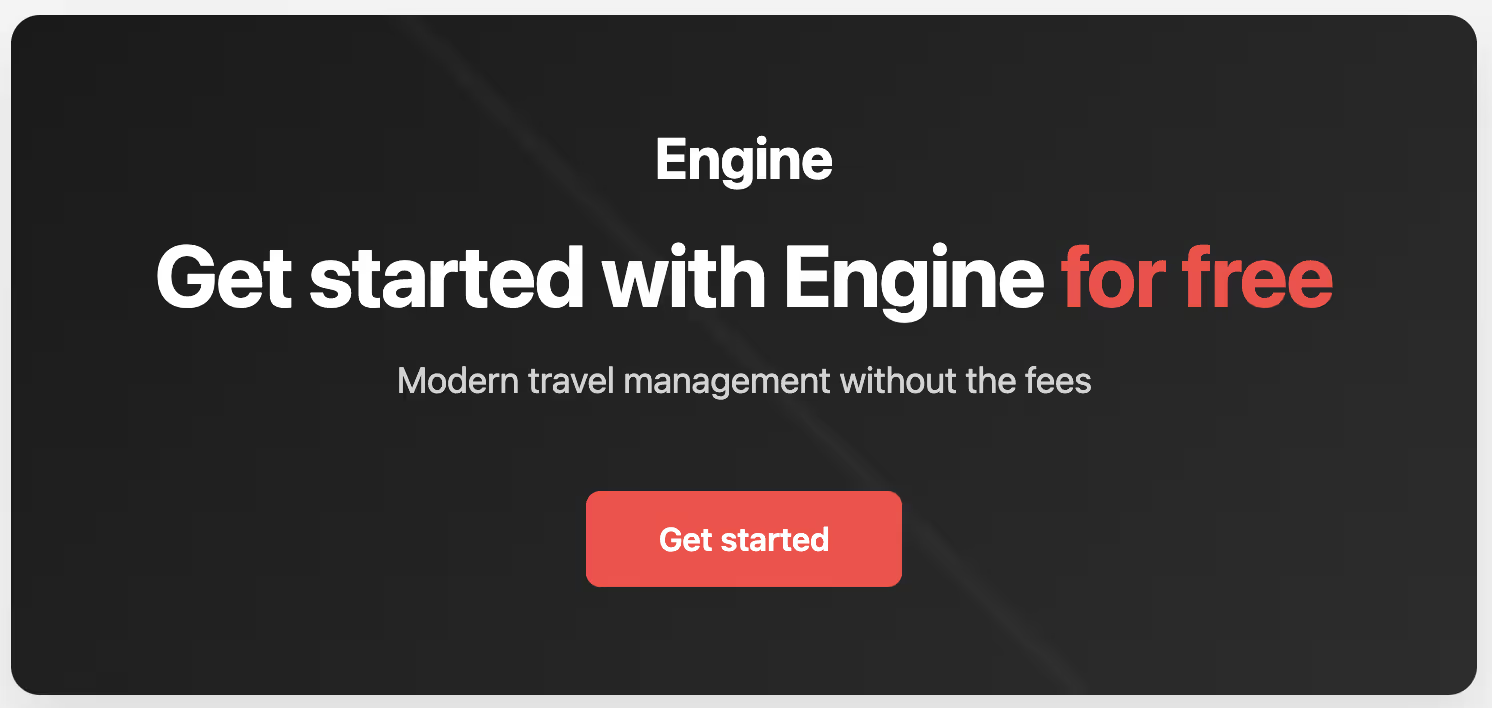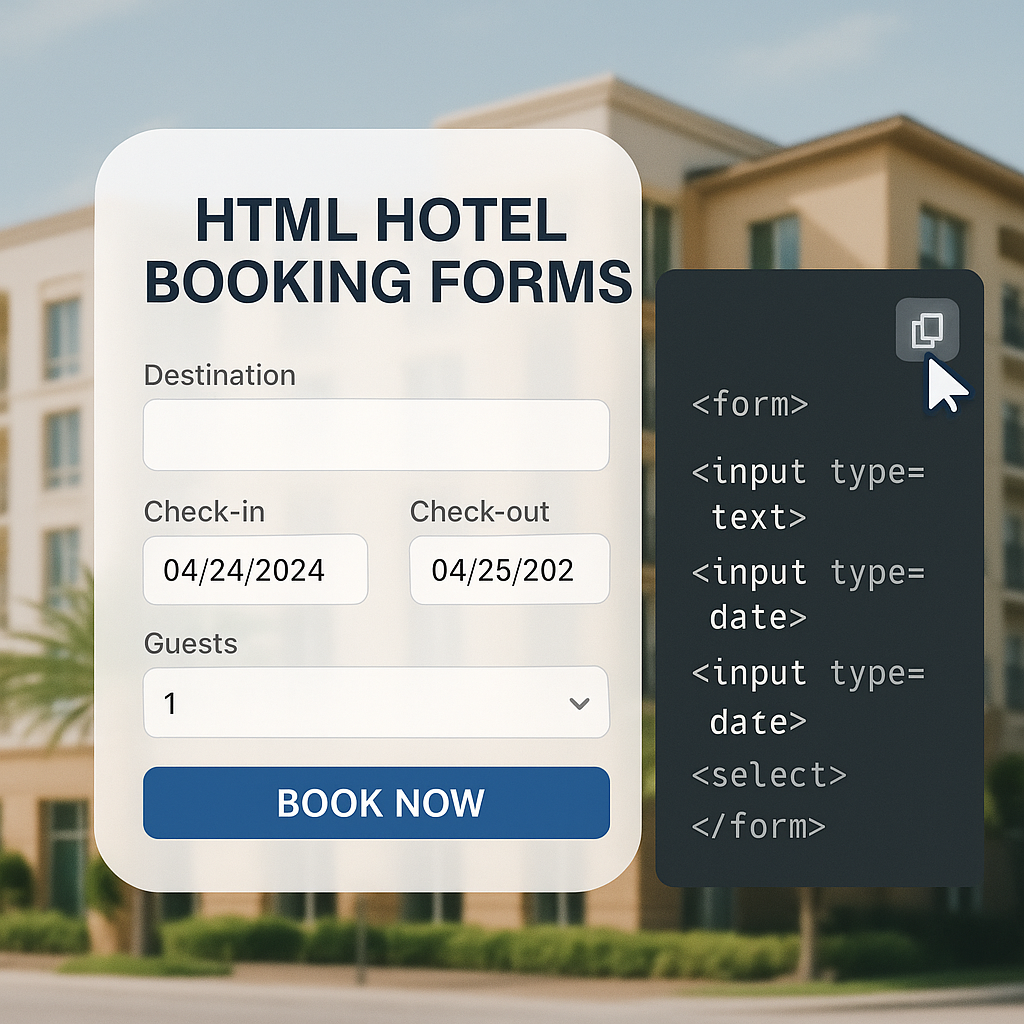How to Find the Right Hotel Booking Tool for Your Transportation Company

Your driver needs rest after a 10-hour shift. The booking site shows 50 hotels with no truck parking details.
He calls three. None can fit his 53-foot trailer. He books blind, arrives at midnight to find the lot full, and wastes another hour hunting for parking.
This repeats itself constantly across transportation companies. Generic platforms can't filter for truck parking, creating DOT compliance risks, wasting money on unusable rooms, and scattering receipts across dozens of statements. That’s because platforms built for traditional corporate travel treat schedule flexibility like it's optional when freight schedules demand it.
This guide shows you exactly what to look for in a platform built for how transportation works: unpredictable schedules, drivers booking from the road, and routes that follow freight lanes instead of vacation destinations.
Why Most Platforms Can't Handle Transportation
Tourist booking sites are built for people planning vacations weeks ahead. Not dispatchers coordinating drivers who need a room tonight.
They lack custom route-tracking fields. They only offer a weak "parking available" filter instead of truck dimensions.
Cancellations give you vouchers for future travel instead of refunds that help cash flow. Dispatch tracks bookings by hand in spreadsheets because platforms don't offer real-time visibility.
Travel management companies (TMCs) want big contracts for airlines and corporate offices. Implementation takes months, fees add up fast, and they expect predictable travel—not daily route changes.
That's overkill for mid-size companies that need a fix now.
Locally negotiated rates only work if you run the exact same routes for months. When freight shifts, those hotels become useless.
Calling each hotel separately doesn't scale. You get no dashboard visibility and can't track costs for customer contracts.
Define Your Non-Negotiables
You don't have time for tools that don't understand freight.
Figure out your four deal-breakers before you sit through another sales pitch. If a platform fails these non-negotiables, skip the demo.
Route-Specific Cost Tracking
You need to bill customers for hotel costs. Without route codes at booking, you're manually sorting hundreds of charges at month-end.
Worse, you could end up billing Customer A for Customer B's hotels, only discovering it months later when margins don't add up.
Now you're either eating the loss or sending awkward correction invoices.
Look for platforms where custom fields flow straight to invoicing. Engine builds route-code tagging into booking, connecting reservations to customer contracts without manual work.
Budget Protection for Schedule Changes
Transportation schedules shift constantly—weather, cancellations, traffic, breakdowns. If 30% of 50 monthly bookings change at $120 average rate, you're risking $21,600 annually on cancellation policies that favor hotels over your cash flow.
Without refund protection, changed bookings mean lost money or restricted credits that don't help working capital. Engine's Flex Pro guarantees refunds for cancellations up to noon on check-in and modifications up to noon on checkout.
Your budget stays protected when schedules shift.
Cardless Check-In
Drivers paying out of pocket quit. They move to competitors who don't make them float $150 nightly on personal credit cards while waiting weeks for reimbursement.
You lose experienced people over check-in hassles.
Direct Bill with incidental coverage enabled means drivers never touch their wallets. Engine covers both room charges and incidentals; you get one consolidated monthly invoice. Drivers are never left waiting for reimbursement.
Real-Time Driver Visibility
Without visibility into active bookings, you're calling drivers and interrupting rest periods. The visibility gap creates compliance exposure during DOT audits, which require proof drivers took required rest.
Look for platforms with real-time dashboards showing driver locations by route and date.
Calculate the True Cost Beyond Room Rates
The room rate is only one part of the bill. The real cost includes hours wasted on chaos, money lost when routes change, and hidden fees.
Build this spreadsheet before comparing platforms:
Most companies find their "cheap" solution costs thousands more once hidden expenses appear.
Test for Transportation-Specific Deal-Breakers
Generic booking platforms claim they work for transportation. Run these three tests with your real routes and drivers. These tests will expose whether your booking platform understands freight logistics.
Parking Capacity at Hotels
Most lots only fit 2-3 commercial trailers. Those spots fill up early. What’s more, when a hotel says "parking available," they almost never mean space for a 53-foot trailer.
This means your drivers are booking based on incomplete information. They arrive at midnight after 10-hour shifts, find zero truck parking, and burn valuable hours of service searching for spaces. Drivers quit from accommodation frustrations and potential DOT violations.
How to test:
- Does the platform show parking dimensions, not just "parking available"?
- Can you filter specifically for commercial truck parking?
- For fleet bookings, can you verify truck capacity before checkout?
- Can you see backup options within five miles of your primary choice?
Handling Unpredictable Driver Needs
Long-haul drivers can't predict tomorrow's stop until they're driving there. They book during quick breaks. Calling dispatch at night for every stop doesn't work.
If the booking process is complex, drivers delay booking, arrive without rooms, and eventually move to competitors who make accommodation easy.
How to test:
- Can drivers book from mobile without calling dispatch after hours?
- Does the platform default to truck-friendly properties or show downtown business hotels?
- Are per diem limits enforced automatically at checkout?
- Does dispatch get real-time visibility when drivers book independently?
Rural Route Coverage
Weak coverage in your markets means you're back to calling hotels directly for half your routes. You've gained nothing—still burning admin time, still paying retail rates.
How to test:
- Search five real destinations from last month's routes
- Check whether truck parking filters work in those locations
- Verify the platform has multiple options per destination, not just one property
If a platform fails two or more of these tests, it doesn't match your operation.
Verify Your Workflow Compatibility
If adopting the platform means two full days of driver training, expect low adoption. Your drivers will keep using the old system. Your consolidation effort will fail.
Transportation operations need different booking setups:
- Centralized: Best when dispatch handles everything. One person books all drivers.
- Decentralized: Best for long-haul. Drivers book on their own from the road using mobile apps with automatic spending limits.
- Hybrid: For mixed operations where different teams need different permissions.
Forcing the wrong workflow model means drivers won't use the platform. Dispatch will find workarounds. Your spending controls will fail.
Request a demo showing your exact workflow. A generic presentation won't tell you if the tool fits how you book.
Engine Passes Every Transportation Reality Test
Transportation and logistics teams need a platform that understands freight schedules change hourly, not weeks ahead like vacation plans. Engine was built for the chaos you live in—with over 800,000 properties worldwide and verified parking details before booking.
We built our platform for companies tired of forcing consumer sites to work for commercial fleets.
- Tag every booking with route numbers or customer names. Custom Fields flow the data straight to your invoice for clean accounting.
- Get your money back when plans change. Flex Pro ($200 monthly or $2,000 annually) guarantees refunds for cancelled or modified bookings. Cancel up to noon on check-in—Engine refunds you even if the hotel won't.
- Let drivers check in without presenting cards. Direct Bill plus Incidental Coverage eliminates driver credit card requirements. You receive one consolidated monthly invoice.
- See every active booking filtered by driver, route, or date. The dashboard shows real-time visibility into where drivers are.
You can save up to 60% on bookings. Get 24/7 U.S.-based support and earn loyalty points. No contracts required.
Ready to test a platform that meets all your travel needs? Create your free Engine account and test coverage on your routes. Engine supports drivers booking independently on mobile, dispatch booking centrally, or a hybrid model.

Frequently Asked Questions
How does Engine handle last-minute driver bookings when routes change unexpectedly?
Engine's mobile platform allows drivers to book accommodations instantly from the road, with 24/7 support available for urgent situations. Travel policies automatically enforce rate limits even on emergency bookings, so your team stays compliant while getting drivers housed quickly.
Can we set different spending limits for regional routes versus long-haul operations?
Yes, Engine's travel policies support location-based rate limits, so you can set higher per diem allowances for expensive markets like major metro areas while maintaining tighter controls on rural routes. Custom fields also let you tag bookings by route type for separate budget tracking and analysis.
What happens if a driver books a hotel that doesn't have truck parking available?
Engine's 24/7 support team can help relocate drivers to alternative accommodations if the property doesn't match what was booked. With Direct Bill, there's no out-of-pocket cost to the driver during the rebooking process, and modifications through FlexPro ensure you're not charged for the incorrect reservation.








.jpg)

.jpg)


![What is an OBT? [+ Why They Matter]](https://cdn.prod.website-files.com/66a41388b1be9ba182f1e80c/66f97c4190ac5e26bea90c05_66a41388b1be9ba182f1efc0_online-booking-tool.avif)
.avif)










.jpg)








.avif)

